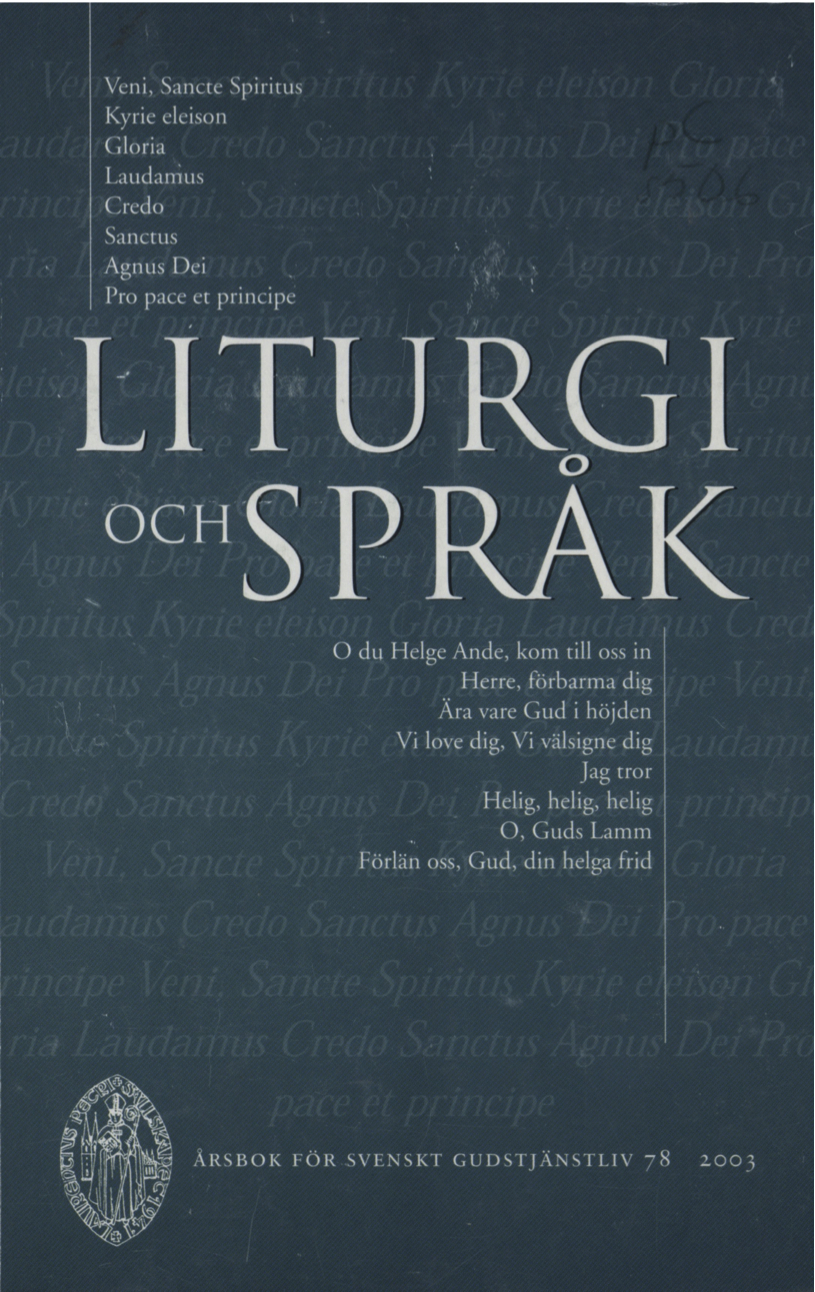Hänförelsens språk Mysteriets liturgiska språkdräkt i fornkyrklig teologi
Abstract
The Language of Rapture - The Liturgical Idiom of the Mystery in Early Christian Theology
In modern Western spirituality there is a tendency to make a polarization between »dead ritual» and »living experience» and to emphasize a necessity for personal language in worship as opposed to traditional ritual and a language imposed from above. At the same time we are aware of the very personal attachment to ritual both in the worship of other religions (hinduism, islam) and in Christian settings as for instance Taizé. The article tries to break up the dichotomy by looking at how the role of language was considered in some of the authors of the Early Church with their very different concept of knowledge. First the liturgical pedagogy of the baptismal catechesises by St. Cyril of Jerusalem is analyzed in connection with his role in the making of the liturgical year. Here the role of the Biblical language and texts in the liturgy is to guide the participant on a specific road where new expressions and scenes are part of a program of training and inculturation into a Christian world. The participant is changed by his participation and by becoming integrated into the world of the Bible. Secondly the distinction between kerygma and dogma in the treatise on the Holy Spirit by St. Basil of Caesarea is discussed. Here St. Basil argues that the language of the Bible is kerygmatic and by its human nature open to everyone, whereas the language of the liturgy, including the Creed, is dogmatic, dealing with divine things it cannot really be expressed in human language. It is mystical and thus presupposes initiation. The language of the liturgy is a kind of code that cannot be appreciated or understood outside its context. Thirdly the philosophy of theological language in the Pseudo-Dionysian corpus is introduced as a further development in Early Christian reflection on liturgical language. Here the emphasis is on the interrelation between received language and personal experience. For Dionysius there is an interdependence between revelatory, kataphatic, and mystical, apopbatic, language. For a Christian it is necessary both to receive the language about God, primarily in the Bible, and to transcend it as not really appropriate for God. In the language of the liturgy God reveals himself at the same time as he hides behind the veil of language. It is thus necessary to grasp the language but also to move beyond it. The con-elusion is that by listening to the voices of the Early Church we could perhaps see the liturgy and its language is not something to be understood, but rather to be transformed by. It is not what we invent that is personal, it is rather that which changes us.
Downloads
Publicerad
Nummer
Sektion
Licens
© författarna, Laurentius Petri Sällskapet för svenskt gudstjänstliv samt Artos & Norma bokförlag. Det är tillåtet att kopiera och använda material ur Svenskt Gudstjänstliv för forskningsändamål om källan anges. För övriga ändamål kontakta respektive artikelförfattare samt förlaget. Särskilda restriktioner kan gälla för bildmaterial.


